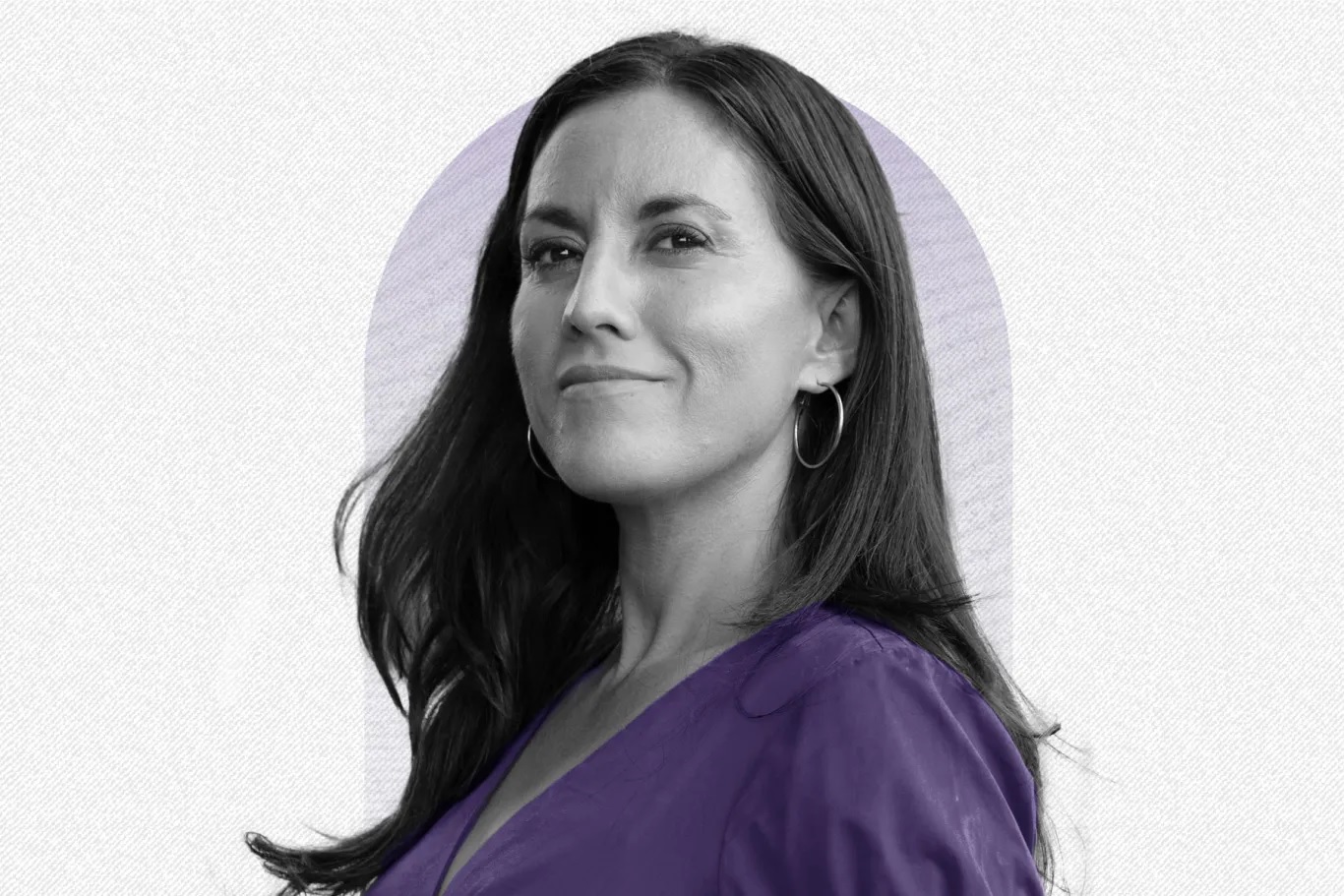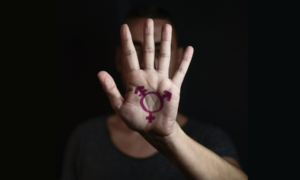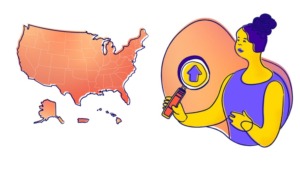Originally published by The 19th*.
![]()
Cristina Tzintzún Ramirez, executive director of NextGen America, says young voters need candidates to engage with them directly on climate change, abortion access and progressive economic policies.![]()
Cristina Tzintzún Ramirez has spent much of her career mobilizing young people — especially Latinos — to make their voices heard at the ballot box and beyond.
In 2016, Tzintzún Ramirez founded Jolt, an organization that uses culture, art, storytelling, voter registration and border organizing to engage young Latino voters in her home state of Texas. Their online reach extends to 50-60 million people, she said.
A striking image associated with Jolt features 15 young girls in quinceañera dresses protesting anti-immigrant and anti-Mexican legislation in Texas. This image has “become a rallying cry for the future they want to build,” according to Tzintzún Ramirez. Jolt has become one of the most powerful organizations mobilizing young Latino voters in Texas despite facing challenges from the state’s attorney general, who has attempted to stop them from registering voters.
Tzintzún Ramirez currently serves as the executive director of NextGen America, which mobilizes young people nationwide to be politically engaged and vote, with the goal of “harnessing the power of young people to reshape the political outcome of our country – not for an election cycle but a generation,” according to NextGen’s website.
Tzintzún Ramirez has also written books on immigration, gender and race. She spoke to The 19th about the overlooked political power of young Latino voters and the issues most important to young Latinas.
The Interview
This interview has been edited for length and clarity.
Merdie Nzanga: What are some misconceptions that you believe people have about Latino communities?
Cristina Tzintzún Ramirez: There’s a widespread misconception that the Latino population in the United States have newly arrived, when in fact many Latino families have deep historical roots in the country. Some areas, such as Northern Texas to California, were once part of Mexico.
This misconception is often used to deny the Latino community power and recognition in the American story, failing to acknowledge their historical and present-day contributions to the nation’s development.
Where do you think that young Latino voters right now stand on issues of abortion, immigration and climate change?
Young Latino voters tend to care most about progressive policies, similar to other young people in the country. They are particularly concerned about issues such as the climate crisis, abortion access and progressive economic policies.
“While Republicans have made some inroads with certain segments of the Latino population, young Latino voters generally lean more progressive and are less likely to support Republican candidates.”
— Cristina Tzintzún Ramirez
While Republicans have made some inroads with certain segments of the Latino population, young Latino voters generally lean more progressive and are less likely to support Republican candidates.
So when we talk about younger Latinos, especially when we talk about the climate crisis, actually, Latinos are one of the ethnic groups that most have concern.
The Latinas, in particular, are very supportive of ensuring abortion access, and the right to health care. Latinos are more progressive, than they are Republican.
Have Harris and Trump made efforts to reach young Latino voters?
Both major political parties have made attempts to reach out to Latino voters. The Harris campaign has made significant efforts, but there are still opportunities to do more.
I think we’ve seen attempts by both sides to reach out to Latino voters in history.
I think it’s so important that the Harris campaign looks at expanding who they normally target. There are so many young Latinos that deserve and need to have a candidate reach out to them.
What steps do Latino voters want political leaders to take in order to address the issues with immigration and abortion?
They want to see a clear, strong platform that addresses border security while also creating a pathway to citizenship for undocumented immigrants.
There’s a desire for equal rights and protections for undocumented individuals, many of whom care for families and children in the United States. The community wants respect for the work these individuals do in the country.
[Related: A campus shooting spurred her political awakening. Her whole family followed.]
Abortion rights are a significant concern, particularly for young Latina voters. Harris has positioned herself as passionate about this issue. Despite stereotypes based on Catholic values, Latinos, like other Americans, have diverse views on abortion. Data clearly shows that they overwhelmingly oppose abortion bans, such as those implemented in Texas.
Latinos are one of the ethnic groups most likely to lack health care. Abortion bans disproportionately affect them, often leading to complications in health care access.
The prospect of a Trump presidency (referred to as Trump 2.0) is particularly concerning for families where one member may be undocumented, creating a sense of fear and uncertainty.
***
Merdie Nzanga is one of The 19th*’s reporting fellows. She has covered everything from health, immigration and politics to voting rights and climate change. Previously, she worked at Modern Healthcare where she covered Congress through the health care lens. She is a graduate of Howard University.
The 19th — named after the 19th amendment to the U.S. Constitution — is an independent, nonprofit newsroom reporting on gender, politics and policy. Their goal is to empower women and LGBTQ+ people — particularly those from underrepresented communities — with the information, resources and tools they need to be equal participants in our democracy.
This Latinx Heritage Month, The 19th is telling the untold stories of women, women of color and LGBTQ+ people. Subscribe to their daily newsletter.
































